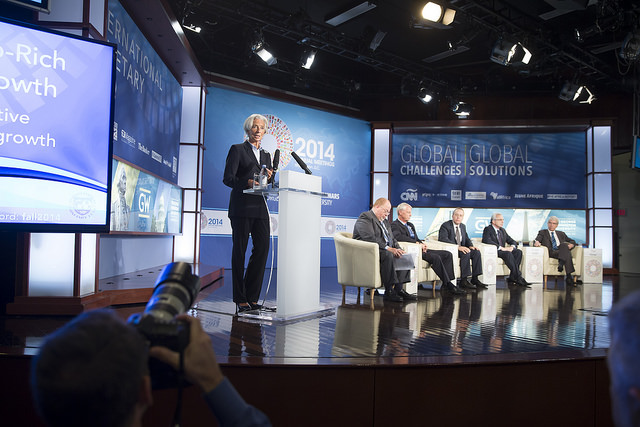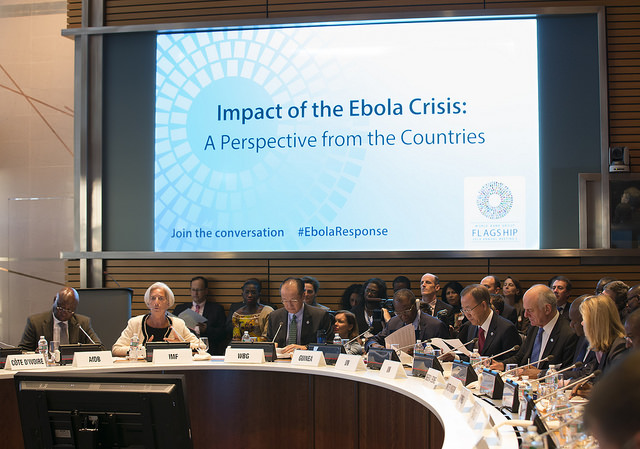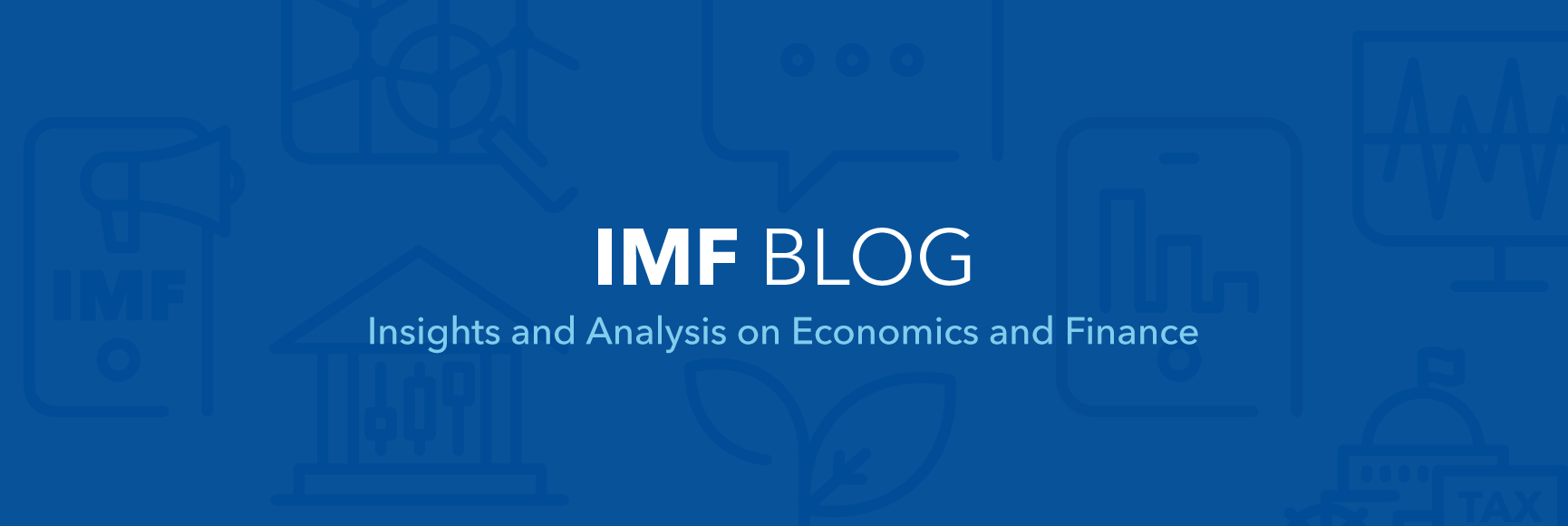I know it might sound odd, but I actually like the IMF-World Bank Annual Meetings. I know the traffic snarls on Pennsylvania Avenue are terrible, Washington cabbies ruder than ever, lots of men in dark suits (and sadly, they are still mostly men), and there is the constant rush from meeting to meeting.
But beyond the long lines, long hours, cold coffee and the constant buzz of communiqués, press releases, and scores of official meetings, I find my place in the rich and stimulating discussions among the non-official community.
This year, over 600 civil society organizations, including members of parliament, academics, and several youth and labor groups, came to the meetings. They deliberated, discussed and debated some thorny issues. The burning issues close to their hearts? Not that different from what officials are also debating. Here is some of what I heard:
[caption id="attachment_8351" align="alignright" width="300"] International Monetary Fund Managing Director Christine Lagarde speaks at a seminar on "Challenges of Job-Rich and Inclusive Gorwth" at Jack Morton Auditorium at George Washington University during the 2014 IMF/World Bank Annual Meetings October 8, 2014 in Washington.[/caption]
International Monetary Fund Managing Director Christine Lagarde speaks at a seminar on "Challenges of Job-Rich and Inclusive Gorwth" at Jack Morton Auditorium at George Washington University during the 2014 IMF/World Bank Annual Meetings October 8, 2014 in Washington.[/caption]
Jobs, Jobs, Jobs! With the jobless recovery and unemployment persisting in many parts of the world, it was no surprise that this was on the minds of labor and youth. IMF Managing Director Christine Lagarde noted that if the unemployed formed a country, they would be the world’s 5th largest country (sobering thought).
The ILO’s Guy Ryder noted that “a major policy effort is needed to reverse the slide into persistent low growth…the priority must be to lift aggregate global demand.” On the corridors, there was broad support for the IMF’s recommendations to increase public investment in infrastructure. See related chapter in the WEO (This rings a bell for those of us who reside in DC!)
The conversations on jobs inevitably led to discussions on inequality…. This is a topic that resonates widely with civil society and the IMF’s recent work (see Ostry/Berg and Gupta/Keen) surfaced in many conversations. Justin Wolfers remarked “In the 1980s, the IMF was all about fiscal austerity—today, its focus on inequality marks an astonishing transformation.” But both Oxfam and the ITUC called on the Fund to pay greater attention to what was happening on the ground—at the country level.
…and gender. Ambassador Melanne Verveer, in a panel on women and the work force, summed it up nicely when she said women face “a sticky floor, a glass ceiling, and lots of men in the middle.” Lagarde noted bringing more women into the workforce would be an “economic game changer.” Many of the young women I spoke to were surprised and heartened by the IMF’s emphasis on women in the workforce.
So what next on jobs, inequality and gender? Lagarde told civil society that the Fund would be operationalizing jobs, inequality, and gender into its work. We are on it, but working to do even more…
On a different note, Sovereign Debt was another hotly debated topic at the civil society forum. Coming on the heels of the paper that the IMF released last week on collective action clauses, civil society reminded us that the IMF could not, in fact should not try to do everything. CIGI’s Brett House and Jubilee USA convened a panel where discussants debated the benefits of a statutory approach and the contractual approach. This is an ongoing conversation…
[caption id="attachment_8354" align="alignright" width="300"] International Monetary Fund Managing Director Christine Lagarde speaks a a conference on Ebola as she is joined United Nations Secretary General Ban Ki-Moon, World Bank President Jim Yong Kim and President of the African Development Bank Donald Kaberuka during the 2014 IMF/World Bank Annual Meetings at the World Bank October 9, 2014 in Washington.[/caption]
International Monetary Fund Managing Director Christine Lagarde speaks a a conference on Ebola as she is joined United Nations Secretary General Ban Ki-Moon, World Bank President Jim Yong Kim and President of the African Development Bank Donald Kaberuka during the 2014 IMF/World Bank Annual Meetings at the World Bank October 9, 2014 in Washington.[/caption]
The long shadow. Ebola and the tragic toll it is taking lent a note of sadness to the Meetings. The IMF and the World Bank, and other donors, met with the leaders of the three affected countries and pledged the international community’s help. Many participants from the region said they really hoped that the international community would step up efforts—a sentiment echoed by Jeremy Lefroy, UK member of parliament, who led a delegation of parliamentarians to the Meetings. The IMF provided additional and immediate financing of $130 million to the three affected countries.
The beacon of hope—the young. The highpoint of the meetings for me was the participation by the youth. In a fantastic panel on innovation, entrepreneurship, and the prospects for youth, five promising men and women spoke about their dreams, aspirations and how they got to where they are. Gulalai Ismail said “to assert change, the youth need to engage in the decision making process, but they also need good mentors to make a head start.”
And making a head start for next year’s Annual Meetings were the winners of the Latin America youth essay contest! I was inspired and moved by their essays that lay out their aspirations and dreams. So it was only fitting that as the week closed, the Nobel committee announced that the Nobel Peace Prize was being given to India's Kailash Satyarthi and Pakistan's Malala Yousafzai for their struggles for young people's rights, including the right to education.
Last but not least, three big dates to watch for in 2015. Civil Society is looking ahead at three big events in 2015. The Financing for Development Conference in Addis Ababa in July, the High Level Stocktaking Event on the Post 2015 Development Agenda in New York in September, and the Climate Summit in Paris in December. As Managing Director Lagarde aptly put it “2015 is shaping up to be a make or break year.”






